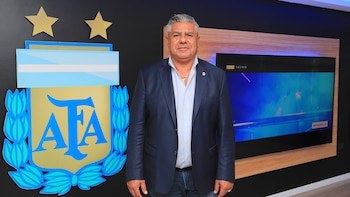
(ATR) Maria Sharapova says she will "immediately appeal" a two-year suspension by the International Tennis Federation for taking the banned substance meldonium.
An Independent Tribunal appointed by the ITF announced Wednesday that the Russian tennis star and former World No.1 committed an anti-doping violation and "as a consequence has disqualified the affected results and imposed a period of ineligibility of two years, commencing on 26 January 2016".
Sharapova, 29, failed a doping test at this year’s Australian Open. She admitted at a press conference in March that she had not realized that a drug that she had been taking since 2006 was put on WADA’s banned list from the start of 2016 and asked for the tribunal to rule on her case. The two-day hearing last month received evidence and heard legal arguments from both parties.
Banning Sharapova Wednesday, the reasoned decision given by the tribunal said: "The Independent Tribunal determined that (1) Ms. Sharapova should serve a period of ineligibility of two years; (2) due to her prompt admission of her violation, that period of ineligibility should be back-dated under Article 10.10.3(b) of the program to commence from 26 January 2016 (the date of sample collection) and so should end at midnight on 25 January 2018; and (3) her results at the 2016 Australian Open should be disqualified, with resulting forfeiture of the ranking points and prize money that she won at that event.
The ITF will point to the suspension as testament to the fact that no tennis player, however big, can expect special treatment regarding its strict anti-doping rules.
According to a statement by Sharapova in response to the ruling, the ITF wanted an even harsher penalty.
"You need to know that the ITF asked the tribunal to suspend me for four years – the required suspension for an intentional violation -- and the tribunal rejected the ITF’s position.
"While the tribunal concluded correctly that I did not intentionally violate the anti-doping rules, I cannot accept an unfairly harsh two-year suspension. The tribunal, whose members were selected by the ITF, agreed that I did not do anything intentionally wrong, yet they seek to keep me from playing tennis for two years.
"I will immediately appeal the suspension portion of this ruling to CAS, the Court of Arbitration for Sport."
It is worth noting that the Independent Tribunal ruling found that Sharapova's use of meldonium was not known to anyone on her team outside of her father and her manager.
The Tribunal also revealed that there was "no document after 2010 in the player's records which relates to her use" of meldonium.
The World Anti-Doping Agency issued a brief statement, saying "As with all decisions made by Anti-Doping Organizations, WADA will review the decision, including its reasoning, and will subsequently decide whether or not to use its independent right of appeal to the Court of Arbitration for Sport (CAS)."
Sharapova’s ban is a huge blow for one of the sport’s biggest stars, one of only 10 women to win a Career Grand Slam, and Russia. The London 2012 Olympic silver medalist, will not compete at the Rio Olympics.
With the IAAF ruling on whether to maintain or lift its ban on Russian athletics due June 17 in the wake of state-sponsored doping allegations, the Russian NOC has at least one name to replace in its team for the Rio Games.
Reported by Mark Bisson
20 Years at #1: Your best source of news about the Olympics is AroundTheRings.com, for subscribers only.
Últimas Noticias
Utah’s Olympic venues an integral part of the equation as Salt Lake City seeks a Winter Games encore
Utah Olympic Legacy Foundation chief of sport development Luke Bodensteiner says there is a “real urgency to make this happen in 2030”. He discusses the mission of the non-profit organization, the legacy from the 2002 Winter Games and future ambitions.

IOC president tells Olympic Movement “we will again have safe and secure Olympic Games” in Beijing
Thomas Bach, in an open letter on Friday, also thanked stakeholders for their “unprecedented” efforts to make Tokyo 2020 a success despite the pandemic.

Boxing’s place in the Olympics remains in peril as IOC still unhappy with the state of AIBA’s reform efforts
The IOC says issues concerning governance, finance, and refereeing and judging must be sorted out to its satisfaction. AIBA says it’s confident that will happen and the federation will be reinstated.

IOC president details Olympic community efforts to get Afghans out of danger after Taliban return to power
Thomas Bach says the Afghanistan NOC remains under IOC recognition, noting that the current leadership was democratically elected in 2019. But he says the IOC will be monitoring what happens in the future. The story had been revealed on August 31 in an article by Miguel Hernandez in Around the Rings

North Korea suspended by IOC for failing to participate in Tokyo though its athletes could still take part in Beijing 2022
Playbooks for Beijing 2022 will ”most likely” be released in October, according to IOC President Thomas Bach.



